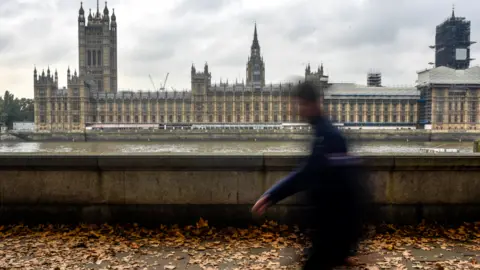How employable are former MPs? – Peter Aldous

- by Admin
- July 13, 2024

 Martin Giles/BBC
Martin Giles/BBCSuch is the ruthless nature of politics, MPs can lose their jobs overnight – leaving behind a starting salary of £91,000.
As the dust settles on one of the most dramatic general elections in a generation, how do long-serving politicians move on from losing their seats? And what support is available to those that face the prospect of unemployment?
Like hundreds of other MPs, mostly Conservative, Peter Aldous lost his seat last week.
He had served the Waveney constituency in Suffolk for 14 years and was standing for the newly-formed Lowestoft seat, which fell to Labour with a 2,000 vote majority.
“All political careers end in failure,” says a despondent Mr Aldous.
“And now I’m not sure what to do next… I’m 62 years old – how employable are former backbench MPs?”
 Zoe Dennis/BBC
Zoe Dennis/BBC“Of course I wanted to be re-elected,” he says. “But halfway through the campaign I realised I’d be facing the situation that I’m in now.
“My staff and supporters are incredibly upset and I’m supporting them through it.”
‘Clean sheet’
Mr Aldous’s office employed four members of staff who would now be made redundant – something he said he felt “guilty” about.
On Sunday, he travelled to Westminster to clear his parliamentary office.
“I’m a former chartered surveyor but when I became an MP I didn’t keep a hand in that,” he says.
“I don’t think surveying is something that I’m going to do again because things have moved on.
“I’m starting out with a clean sheet of paper… It’s too early to say whether I’ll stay in politics.”
Mr Aldous describes representing Waveney as a “tremendous privilege”.
“Time will tell whether I left a lasting legacy,” he adds.
 Getty Images
Getty ImagesLike all MPs defeated at the general election, Mr Aldous will be eligible for support to help him plan his future and “adapt to life away from Parliament”.
The House of Commons, through taxpayers’ money, funds a “transition” service to support “departing members” with career planning, CV writing and interview techniques.
It also offers advice on personal security matters, returning IT equipment, backing up personal data in accordance with GDPR and mental health services.
Recent changes to the way former MPs are treated by the House of Commons were introduced following reports that many were left on a “financial and career cliff edge.”
Commons officials hope the move makes becoming an MP a more attractive career.
 Paul Moseley/BBC
Paul Moseley/BBC“If you tackle the role as I have done it’s absolutely relentless,” says former Conservative MP, Duncan Baker.
“I haven’t had a single day off since the day I was elected. I had friendships disappear because you just simply don’t have the time.”
Mr Baker, 44, had represented the North Norfolk constituency since 2019 before it was won by the Liberal Democrats last week with a 3,000 vote majority.
“In some regards, there’s now a weight off my shoulders,” he says.
“I’m very much looking forward to getting my family back. I’ve missed them enormously.”
‘You have to prepare’
Former MPs receive a Loss of Office Payment (LOOP) as well as a winding-up payment, equivalent to four months’ salary.
When asked how he feels losing his £91,000-a-year salary, Mr Baker, a father of two young daughters, says it is “tricky”.
“But you have to be sensible, you have to prepare for these things and you have to make sure you have a degree of savings to be able to continue for the next few days,” he adds.
“I’m very lucky that my wife works extremely hard for a dual income in the household.”
 Paul Moseley/BBC
Paul Moseley/BBCThe House of Commons gives departing MPs four months to wind down their offices.
For Mr Baker, a qualified chartered accountant, that means closing down his local constituency office, supporting his six members of staff with redundancy and ending a contract with a family in London from who he rented a room to support his time in Westminster.
He says he is now looking for a “commercial business opportunity”, possibly in the charity sector, and is ruling out an automatic return to politics.
“I hugely enjoyed what I’ve done… but I feel in a large sense that I’ve done my time,” he adds.
“Never say never, but at the moment I want to move on from public life.”
The Latest News
-
December 22, 2024Elon Musk’s British cousin reveals how brutally world’s richest man snubbed him: ‘I’m shocked that…’
-
December 22, 2024‘Labour will torpedo my firm’: One of Britain’s OLDEST family businesses says inheritance tax plans could destroy his finances in ‘blink of an eye’ after 250 years of trading
-
December 22, 2024UK Weather: Wind messes up UK travel plans
-
December 22, 2024Life in one of Britain’s most miserable towns: Locals in Barking blast council ‘shambles’ and say shopping centre is so empty it is like living in a ‘ghost town’
-
December 22, 2024Christmas travel chaos continues with 100 Heathrow flights cancelled amid severe 80mph wind weather warnings






